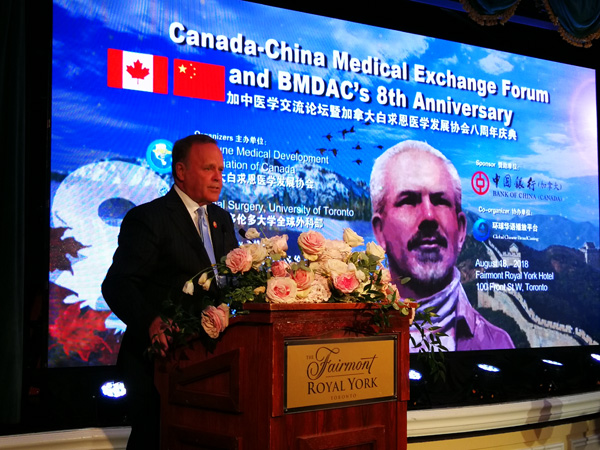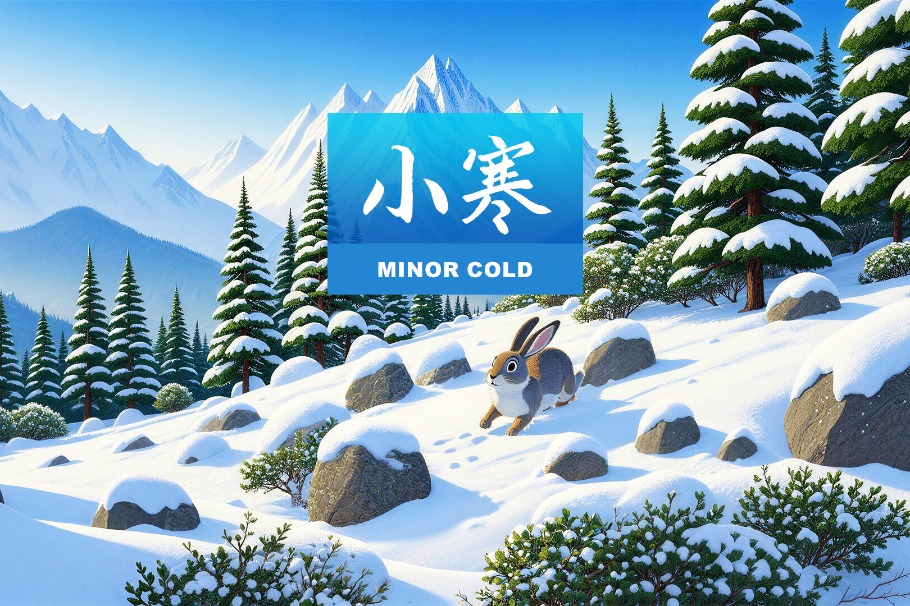Canada's 'new-age Bethune' gets award
Xinhua | Updated: 2019-04-10 09:37

"We have established extensive contacts with Chinese people and forged deep friendship," said Lee Edward Errett, winner of 2018 Chinese Ambassador's Award in Canada, recently.
The award is designed to commend Canadians who make outstanding contributions to the development of China-Canada relations.
China's Ambassador to Canada Lu Shaye praises Errett as "contemporary Bethune" because he has contributed to the promotion of the Contemporary Bethune in Action activities and that of China-Canada medical cooperation.
Canadian physician Norman Bethune, a household name in China, and his medical team landed in China in 1938 to help Chinese people to fight against Japanese invasion troops during World War II and died in China in 1939.
Errett, a renowned cardiologist in Canada, took the lead in establishing the nonprofit Bethune Medical Development Association of Canada in 2011 to promote Bethune's spirit of internationalism and China-Canada exchanges in the field of medicine.
Errett, who's also a professor of surgery at the University of Toronto, has conducted about 260 free clinics, performed 155 surgical operations, given 220 academic lectures in China, and arranged for more than 80 young Chinese doctors to go to Canada for free training since 2011.
Errett has so far made 21 trips to China, with "many unforgettable stories" about his "Chinese friends".
He once operated on a 7-year-old Chinese boy who appeared to be only 4 years old because of heart problems.
"The boy is now 18 years old and taller than me," he says.
"The job of my team is not to make money. I just want children like that boy to be taller than me. It's one of the best experiences of my life."
The BMDAC twice a year gets Canadian medical experts to carry out free diagnosis and academic exchanges in many hospitals in China, something it has done since 2012. It also helps a dozen of Chinese doctors to study in Canada every year.
The BMDAC has about 300 members, including medical professors, doctors and researchers from top universities and hospitals in Canada, with a few others from countries such as the United States, Britain and Australia.
Compared with China, Canada's Western medical system still has much room for improvement in the treatment of patients, Errett says. And he hopes to learn from his Chinese counterparts and establish a two-way teaching system.
"My colleagues and I have witnessed the growth of China and will continue to go to the places that need to be visited. We want to leave something sustainable for further progress," he says.
Errett says he is looking forward to a visit of his team to China in May.
Speaking highly of Errett's generous contributions to and selfless love for developing bilateral ties, Lu says Errett has promoted China-Canada medical exchanges and cooperation with his concrete actions and brought health and well-being to a vast number of Chinese people.
"We look forward to seeing more 'contemporary Bethunes' like Professor Errett, who will inject new vitality into the cause of China-Canada friendship in the new era," says Lu.
























